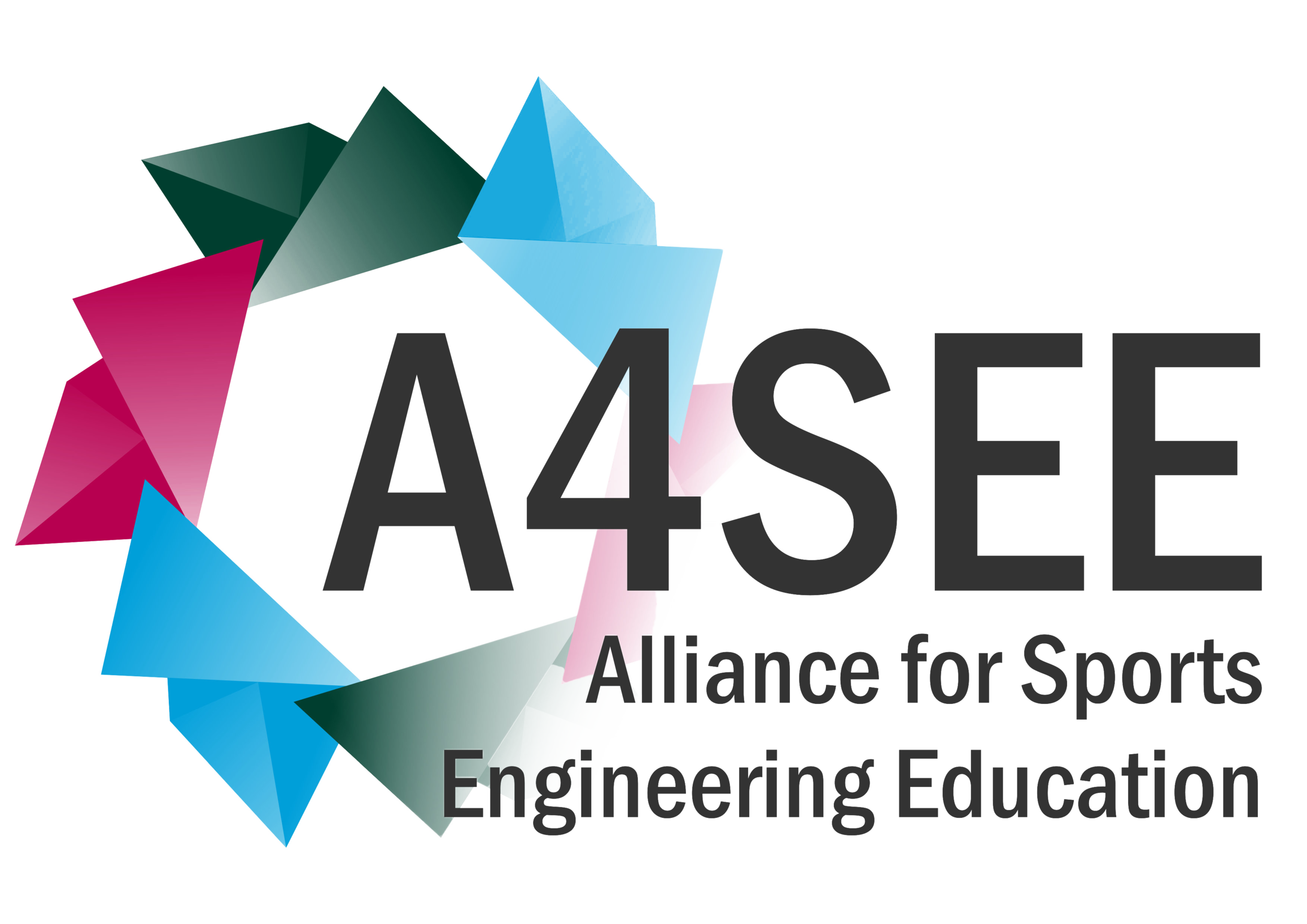Programme
The framework for the two-year MSc education goal is defined as:
‘The MSc graduate has an overall view of the Sport Engineering discipline. He has a thorough and detailed knowledge of one or more sub-disciplines and is able to apply relevant mathematical, physical and general engineering knowledge in the multi-disciplinary, human-oriented environment of Sport Engineering and its related technical fields. His technical scientific knowledge is accompanied by an application-directed and problem-solving attitude. He is capable of integrating the various disciplines in order to solve complex problems. He is able to develop tools and verify solutions through experiments. He is expected to work in an international context as a valuable member of multi-disciplinary teams. He communicates solutions clearly and shows an awareness of their technical and social implications.’
The quality of the programme is made possible by three factors:
The quality of each partner university as education institutions and existing resources and quality assurance procedures.
The experience of the team in the field of sports engineering existing in the consortium
The scale of the programme, which allows for specialization.
The scale and complexity of sports engineering require specialized skills. The profile of the student, as defined in the summary, represents an engineer/researcher that has “thorough and detailed knowledge of one or more sub-disciplines and is able to apply relevant mathematical, physical and general engineering knowledge in the multi-disciplinary, object-oriented environment of Sports Engineering and its related technical fields”. In addition, to be an effective innovator, the engineer/researcher “is capable of integrating the various disciplines in order to solve complex problems”.
The programme consists of 2 years / 4 semesters. The first semester will be at each home institute. The second semester will be an exchange semester through the Erasmus+ exchange program at Sheffield Hallam University (with a focus on Sports Engineering applied to the athlete), at TU Chemnitz (with a focus on Sports Engineering applied to the sports product) or at TU Delft (with a more fundamental focus on Sports Engineering). Associated academic partners will provide specialised teachers on specific topics. The third semester will consist of an internship at one of the participating companies. The fourth semester is dedicated to the research assignment.
At the end of the first and second semester there will be one week dedicated to a winter school resp. summer school. All students will be invited to participate. The winter and summer schools will be organized by the associated academic partners.
Each of the core academic institutes will give a degree to their students, i.e. we are aiming at a Single Degree education.
Courses and accreditation
The programme is designed to start at the academic year 2017 – 2018 following these principles:
All courses are existing courses, and given in the current calendar (no duplication or added effort to create new courses).
Single-diploma, where each specialization meets the full requirements of the accreditation of the individual diplomas (no new accreditation process).
Single mobility for ease of administration.
The partners have created a quality curriculum that follows these requirements.
TU Delft
The TU Delft Sports Engineering Institute is one of the seven TUD institutes, in which research and education in a particular field is concentrated in a multi-faculty institute. In the TUD Sports Engineering Institute the faculties of BK, IO, 3mE, EWI and L&R collaborate
(www.tudelft.nl/sports-engineering-institute).
Currently there is a specialisation in Sports Engineering in the track of Biomechanical Design (MSc Mechanical Engineering). We are aiming to extend this specialisation towards an International MSc education in Sports Engineering, together with partners across Europe.
Sheffield Hallam University
The Sports Engineering group of the Sheffield Hallam University is one of the oldest and renown research and education institutes of Sports Engineering. It is one of the founders of the International Sports Engineering Association (ISEA), the world organisation on sports engineering. It has a long track on bachelor and masters education on sports engineering and a vast network of partners, both from sports organisations and sports industry.
Technical University of Chemnitz
The sports engineering masters within the TU of Chemnitz is one of the oldest within Germany and in the world (about 20 years). It attracts many students from the German speaking countries. Due to its linkages within the university and the sports industry it has built up a reputation on design and instrumentation of sports equipment.
